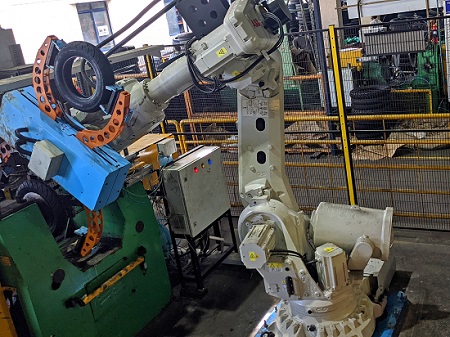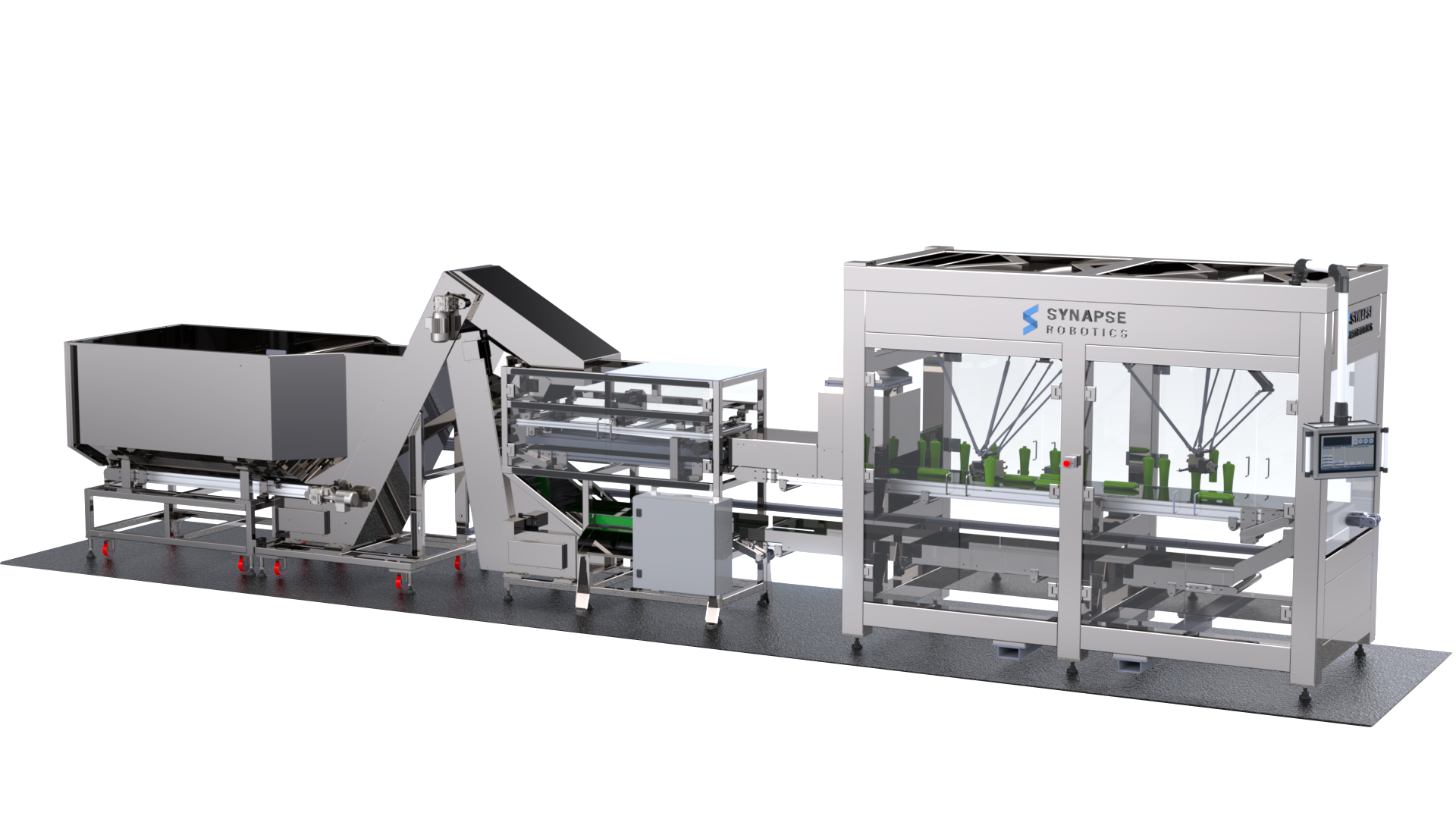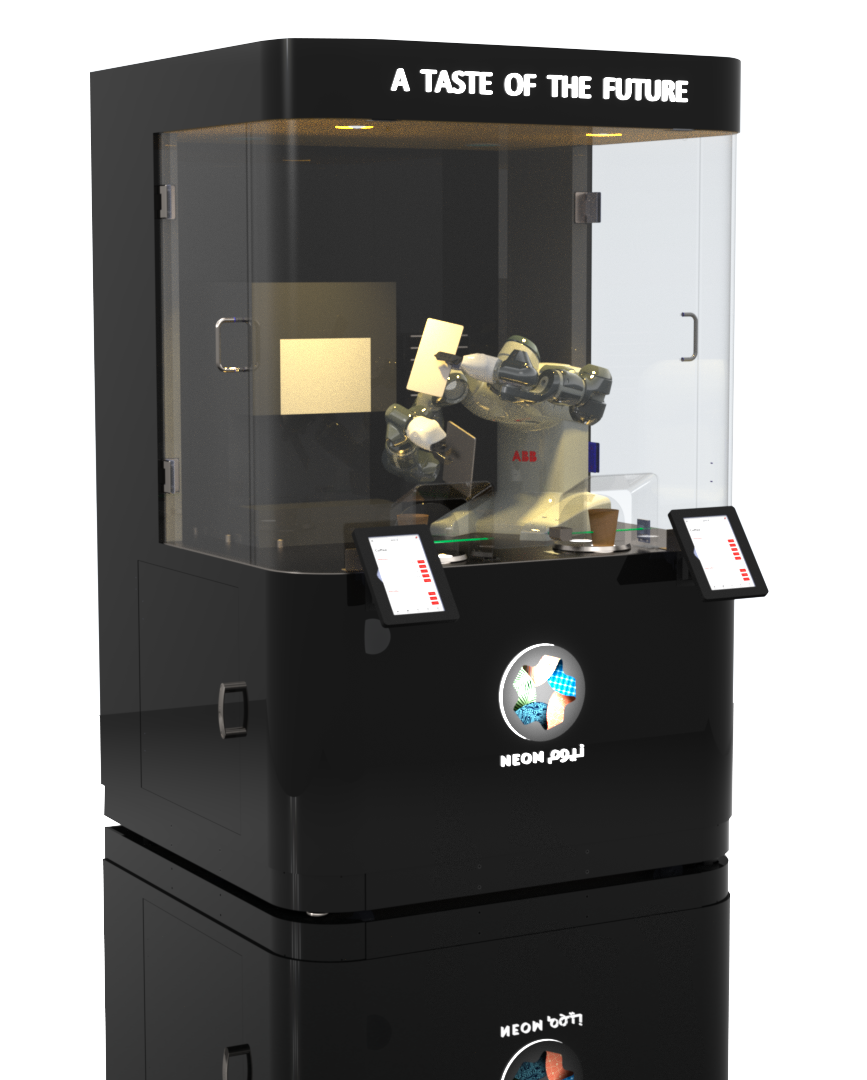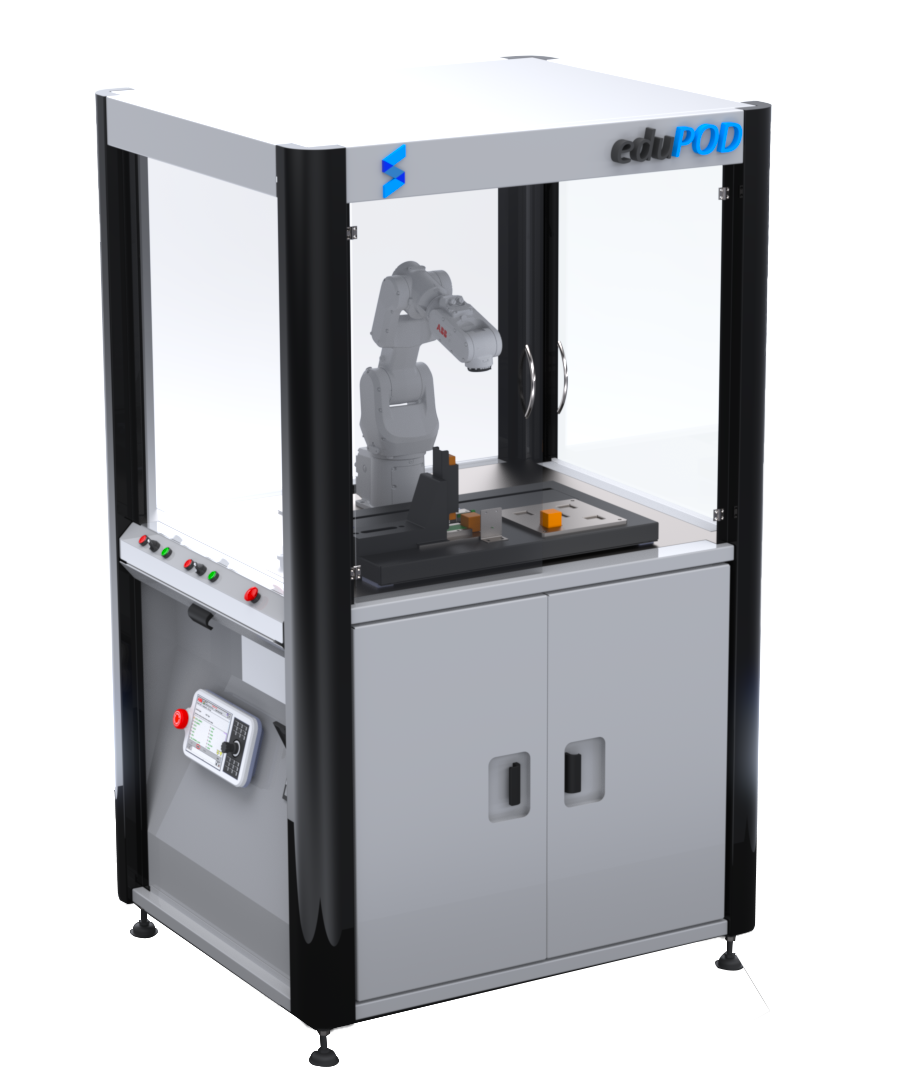SPECIALIZED APPLICATIONS
Tyre Handling
Tyres are bulky and awkward to handle. All tyres go through a 100% inspection process before dispatch. Two wheeler tyres have to be tested for both imbalance and trueness (runout/phaseout). Typically an operator handles around 800 tyres per shift putting them through imbalance and trueness testing machines. Considering an average weight of 4 kg per tyre and 3 picks and places to process each tyre, the cumulative weight handled is around 10 tonnes/day. This repeated handling results is a lot of fatigue for the operators. There are severe productivity losses towards the end of each shift.
Robots are ideally suited for this application. The tyres are fed from the previous manual inspection stations on an infeed conveyor and the robots take care of the rest. The tyres are fed to the imbalance machines and then the trueness testing machines.The tyres that pass the tests are marked and sent to the next process on an outfeed conveyor. The rejected tyres are separated based on the type of rejection and a printer is used to print the reject data on the tyres. These tyres can then be reworked or scrapped based on the type of defect.

Bottle Descrambling
Bottle descrambling is one of the applications best suited for Delta Robots. Bottles dumped into a hopper are elevated using a cleated belt conveyor. The bottles are then fed to a linearizer unit which orients the bottles in either neck forward or reverse orientation.
This improves the density of bottles on the infeed conveyor. The orientation also simplifies the work done by the vision system and saves time for the robot during picking. The robot picks up the bottles in the horizontal orientation from the conveyor, flips it 90 degrees to a vertical orientation by using either a pneumatic or servo actuator. The bottle holders or pucks are moved through a servo controlled timing screw. The robot places the bottles to pucks. The pucks feed the bottles to the filling lines. The repetitive and mundane job of picking and placing the bottles is now accomplished by a robot. For non symmetrical bottles, the robot ensures that the bottles are placed in the pucks in the proper orientation for cap placement.

Coffee Vending
Robots are also used for interesting applications such as coffee vending and bar tending. These applications represent the fun side of robotics. We have developed a compact robot barista which is sure to delight customers. This kiosk is a customer attraction which can be used to enhance and market your brand of coffee or soft drink. The other purpose is to free up the staff for other customer centric functions, while the robot takes care of the repeat job of serving customers.
Various brands of coffee and soft drink vending machines can be integrated with robots. Purposefully designed software with attractive features lets the customers browse and order their favourite drink. While the customers watch the robot does its antics and serves coffee.
POS systems are integrated to provide a completely automated user interface, similar to some of the advanced vending machines on the market.

Modular Training Cells – EduPOD
Learning how to use robots is an integral part of today’s engineering curriculum. Several courses such as Robotics & Automation and Mechatronics engineering require the use of robots for hands on training. At Synapse, we have developed a modular training cell which is very advanced and at the same time, simple to use. The features include,
- Portable POD with a compact footprint.
2. Compact 6 axis robot with 6 kg payload
3. Compact controller housed inside the POD
4. Modular concept for experiments. Each module is built on a separate frame. The available modules are- Beginner level modules with grippers and simple pick and place experiments
- Medium level modules with continuous path programming options
- Advanced modules with integrated vision and assembly
Modules can be removed and stored inside the POD when not in use. - Customized modules can be added and at any time for advanced courses.
- The system is very flexible and students can get creative and design new modules as and when required
5. Optional PLC can be included. This enables students to learn how to interface robots with a PLC. This is a typical requirement for all industrial robotic cells.
6. Ready to use solution with preconfigured plug and play modules.

